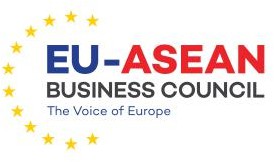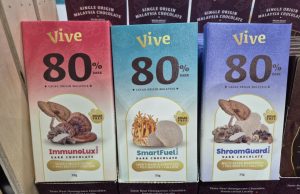The EU-ASEAN Business Council launched its latest report, “Enhancing FMCG Competitiveness in ASEAN: Industry Challenges and Recommendations for the Food & Beverage Industry”. This report is the first publication by the Council covering the Fast-Moving Consumer Goods (FMCG) sector, providing a detailed analysis of the key issues impacting the food and beverage industry, and mapping out the varying nutritional standards across ASEAN member states.
Apart from highlighting the challenges on labelling, the paper pushes for the need to adopt a harmonised Front of Package Labelling (FoPL) and Back of Package Labelling (BoPL) system. Implementing digital solutions is also listed as a key strategy to address the implications of varying Graphic Health Warning Labels (GHWLs) on alcoholic beverages. Further, the report also discusses the application of taxes on Sugar-Sweetened Beverages (SSBs), stressing that SSB taxes have not proven to be successful in achieving its intended health goals. Rather, alternatives such as reformulation and resizing of food and beverage products are the more viable solutions to encourage ASEAN citizens to “consume healthy”.
To read more about the report, download the copy here.
On the launch of the report, Corine Tap, Asia President of FrieslandCampina commented, “I am delighted to see the EU-ASEAN Business Council’s pioneering report on the FMCG sector, a vital step in understanding the complexities within the food and beverage industry across the ASEAN region. The report’s insights into the diverse nutritional standards and industry challenges reflect the pressing need for increased dialogue and collaboration between policymakers and companies with a strong foundation in nutrition science. Despite rapid progress and rising affluence, many children in the region remain malnourished. To this end, FrieslandCampina takes a multistakeholder approach in addressing the Triple Burden of Malnutrition by providing access to nutrition to as many children as possible. This means supporting local governments in both policy and technical discussions, leveraging 150-years of dairy know-how in creating nutritious dairy products, and making them available at every corner store. We commend the Council for its leadership and look forward to engaging with stakeholders to implement the report’s findings.”
Danone’s Africa, Middle East and Asia President, Christian Stammkoetter said, “The launch of the FMCG paper is timely. With health as Danone’s North Star and the cornerstone of our impact, Danone has built a unique health-focused portfolio and are committed to pushing our impact even further. Over the years, our ambition is to lead and act on bringing health through food to as many people as possible, building on decades of research and scientific expertise in health C nutrition to help consumers and patients to maintain and support their health through nutritious food and sustainable healthier eating and drinking choices. Our action remains solid from offering tastier and healthier food and drinks, providing positive nutrition C hydration for healthier life, to Investing in nutrition and hydration science C research. At Danone, our health commitment which is built on the framework of the Health and Nutrition Pledge is clear through Danone Impact Journey”.
Chris Humphrey, Executive Chairman of the EU-ABC highlighted: “The FMCG sector is a vital contributor to economic development across ASEAN, supporting millions of jobs and driving substantial consumer expenditure. However, the sector also faces numerous challenges. Of significance is the disparities in standards across markets, and the issue on taxation on SSB. Additionally, the paper underscores the importance of exploring non-tax incentives and partnerships between industry stakeholders and policymakers to encourage healthier consumption patterns. It calls for a collaborative approach to implement education campaigns and support the reformulation of food and beverage products to achieve health objectives of ASEAN and enhance the competitiveness of the FMCG sector. Most critically, the key message of the report is focussed on empowering consumers, to provide them with the tools to make healthier choices, while supporting the efforts of the industry to innovate and reformulate products.”
About the EU-ASEAN Business Council
The EU-ASEAN Business Council (EU-ABC) is the primary voice for European business within the ASEAN region. Recognised by both the European Commission and the ASEAN Secretariat, and accredited under Annex 2 of the ASEAN Charter, the EU-ABC serves as an independent body committed to promoting European business interests and driving policy and regulatory changes that enhance trade and investment between Europe and ASEAN.
The EU-ABC is dedicated to advancing the interests of its members through strategic advocacy initiatives that cover various sectors and topics. Our mission is to influence policy and regulatory environments to foster a sustainable and competitive business landscape in the ASEAN region.
The EU-ABC’s membership consists of large European Multi-National Corporations and the nine European Chambers of Commerce from around Southeast Asia. The EU-ABC represents a diverse range of European industries cutting across almost every commercial sphere from car manufacturing through to financial services and including Fast Moving Consumer Goods and high-end electronics and communications. Our members all have a common interest in enhancing trade, commerce and investment between Europe and ASEAN.
The Executive Director of the EU-ASEAN Business Council is Mr Chris Humphrey, and its Chairman is Mr Jens Ruebbert. The Council is led by an elected Board consisting of corporate leaders representing a range of important industry sectors and representatives of the European Chambers of Commerce.












